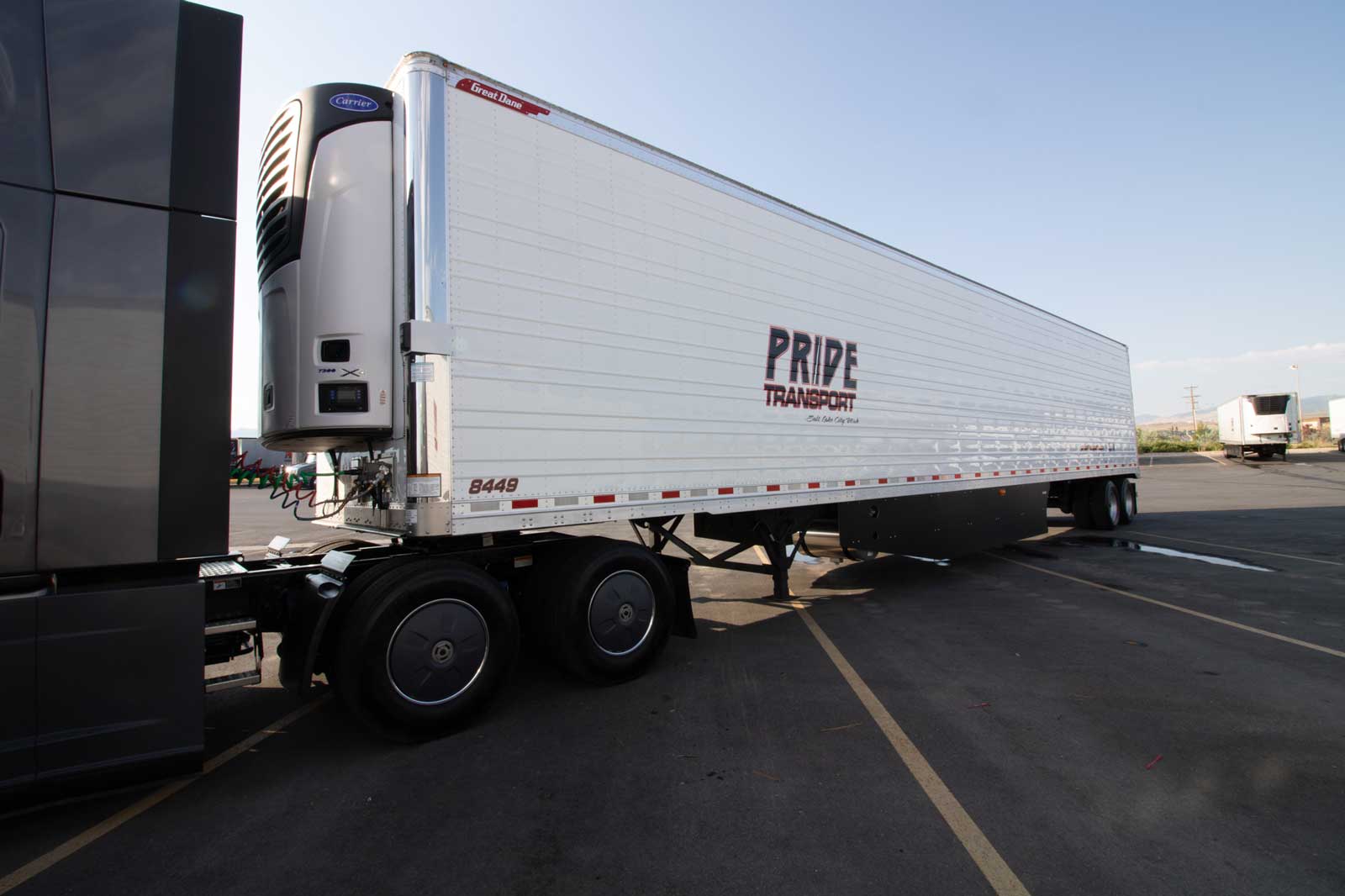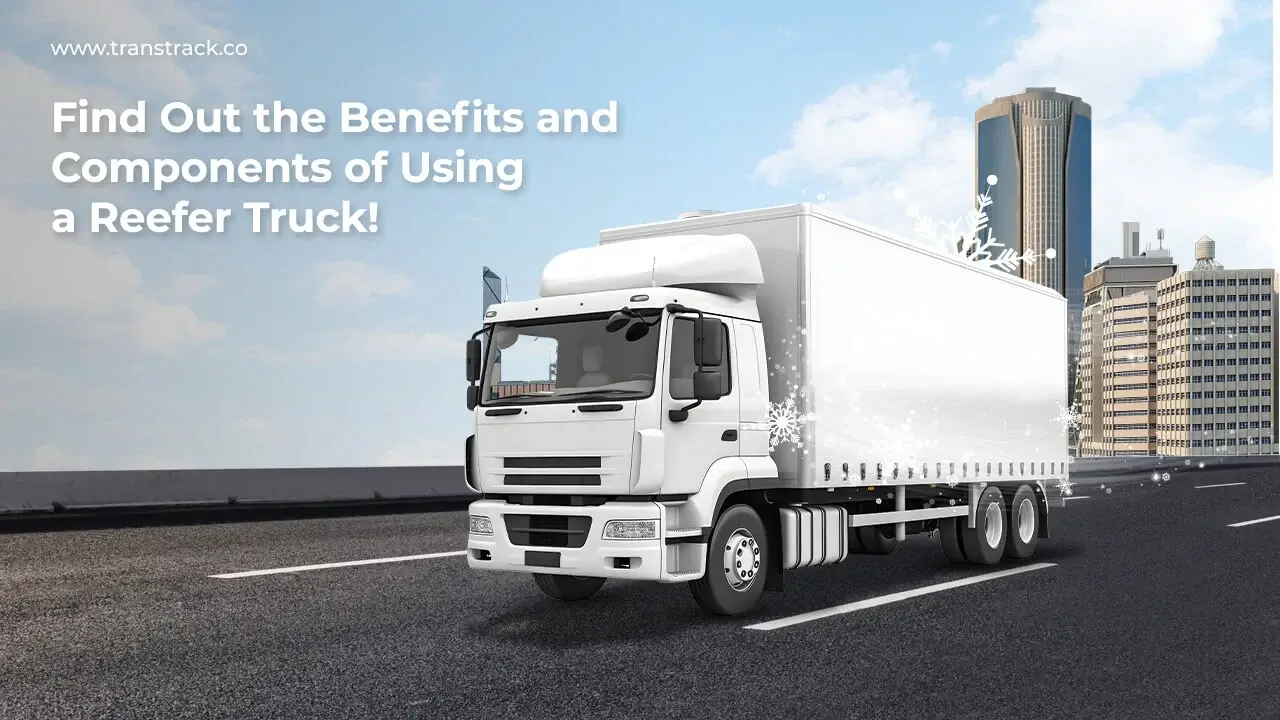Thermo King Truck Refrigeration: Effective Cooling for Your Fleet
Thermo King Truck Refrigeration: Effective Cooling for Your Fleet
Blog Article
Top Technologies in Transportation Refrigeration: Enhancing Effectiveness and Security
The landscape of transportation refrigeration is undergoing substantial change, driven by innovations aimed at boosting both performance and safety and security. As these advancements proceed to progress, it is crucial to explore their ramifications on functional techniques and regulative compliance, triggering a closer assessment of exactly how they improve the future of transport refrigeration.
Smart Temperature Level Keeping An Eye On Solutions
In the world of transport refrigeration, wise temperature level tracking systems have actually emerged as an important technology for guaranteeing the stability of temperature-sensitive products. These advanced systems take advantage of Internet of Things (IoT) innovation to give real-time data on temperature variations, making it possible for drivers to keep ideal problems throughout the supply chain. By continuously tracking the temperature level of chilled containers and lorries, companies can promptly recognize deviations that might jeopardize product high quality.

Additionally, wise monitoring systems commonly incorporate automated alerts and notices, allowing stakeholders to respond without delay to any type of potential concerns. This proactive strategy not only decreases the danger of wasting however also improves conformity with regulatory requirements controling food security and pharmaceutical transport.
The combination of information analytics within these systems likewise promotes anticipating maintenance, aiding operators to anticipate possible tools failures before they take place. This ability lowers downtime and enhances operational performance, inevitably leading to set you back financial savings.
Eco-Friendly Refrigerants
Smart temperature level surveillance systems play a vital function in preserving item high quality, yet the efficiency of transportation refrigeration also pivots on the selection of refrigerants used. As environmental problems climb, the shift towards eco-friendly refrigerants has actually ended up being crucial. Traditional cooling agents, such as hydrofluorocarbons (HFCs), are well-known for their high Worldwide Warming Possible (GWP), adding substantially to climate adjustment. On the other hand, emerging options like hydrocarbon-based refrigerants and hydrofluoroolefins (HFOs) present reduced GWP choices, using both efficiency and sustainability.
These eco-friendly refrigerants not just minimize environmental effect yet additionally align with worldwide guidelines focused on eliminating dangerous materials. Their fostering can lead to enhanced energy efficiency, inevitably lowering operating expense for transport refrigeration systems. The usage of all-natural refrigerants, such as ammonia and carbon dioxide, has actually gotten grip due to their exceptional thermodynamic properties and reduced environmental impact.
Spending in environment-friendly refrigerants is not merely a governing compliance measure; it stands for a calculated decision that enhances brand reputation and fosters consumer commitment. thermo king truck refrigeration. By prioritizing sustainable methods, companies can contribute to a greener future while making certain the stability of transported goods
Advanced Insulation Products
Making use of sophisticated insulation products is crucial for optimizing transportation refrigeration systems, as they significantly improve energy performance and maintain regular temperature level control. Traditional insulation methods typically drop short in preventing thermal transfer, resulting in raised power intake and rising and fall temperatures within cooled compartments.
Arising materials such as vacuum cleaner insulated panels (VIPs) and aerogels use remarkable thermal resistance, permitting thinner accounts without endangering efficiency. VIPs, for circumstances, utilize a vacuum layer to minimize conductive and convective warmth transfer, making them optimal for space-constrained applications. Aerogels, recognized for their light-weight and porous structure, give exceptional insulation while significantly minimizing total system weight.
Additionally, integrating phase modification materials (PCMs) into insulation systems can better maintain temperature levels throughout transit. These materials soak up and release thermal energy, properly buffering versus outside temperature level variations.
The combination of these sophisticated insulation products not just reduces the operational expenses connected with energy consumption yet additionally expands the rack life of temperature-sensitive goods. As the transportation refrigeration industry continues to progress, the fostering of cutting-edge insulation innovations will be pivotal in boosting both effectiveness and safety in refrigerated transport.
Automated Route Optimization
The efficiency of transport refrigeration systems is greatly enhanced through automated course optimization, which leverages real-time information and sophisticated algorithms to establish the most reliable courses for shipment. By evaluating different elements such as website traffic patterns, weather, and delivery home windows, these systems can substantially decrease traveling time and fuel usage.
Automated course optimization lessens human mistake and subjective decision-making, which can lead to ineffectiveness. This technology allows fleet managers to designate resources better, making sure that chilled products preserve their needed temperature level throughout the trip. By optimizing courses, companies can also enhance consumer contentment via timely deliveries.
In addition, automated systems can adapt to unanticipated circumstances, such as road closures or unexpected web traffic spikes, enabling dynamic rerouting. This flexibility not only safeguards the stability of temperature-sensitive items however additionally adds to total functional performance.
Implementing automated route optimization can result in significant expense savings while decreasing the carbon footprint connected with transport. As services significantly focus on sustainability, this technology attracts attention as an important element in modern-day transportation refrigeration, aligning operational objectives with environmental responsibility. Ultimately, automated route optimization represents a substantial improvement in the quest for effectiveness and security in transportation refrigeration.

Real-Time Information Analytics
Automated route optimization dramatically advantages from the integration of real-time data analytics, which supplies important insights right into the performance of transportation refrigeration systems. By making use of real-time information, transport operators can keep an eye on temperature level changes and devices efficiency, making sure that disposable look at here products are kept within needed specifications see throughout transit. This aggressive technique not just boosts the quality of the transported items but likewise mitigates the threat of wasting and loss.

Along with enhancing performance, real-time analytics boosts safety and security by making certain conformity with regulative criteria for temperature level control. This not only secures public wellness however also strengthens a business's track record - thermo king transport refrigeration. As the transportation refrigeration sector progresses, the assimilation of real-time data analytics arises as a cornerstone for driving innovation, sustainability, and operational quality
Verdict
In final thought, the innovations in transportation refrigeration dramatically boost both performance and safety within the sector. Jointly, these innovations represent an important development in transportation refrigeration, making certain conformity with governing criteria and advertising a greener future.
The landscape of transportation refrigeration is undertaking significant transformation, driven by technologies intended at boosting both efficiency and safety and security.Smart temperature tracking Related Site systems play a vital duty in preserving product quality, but the effectiveness of transport refrigeration additionally hinges on the selection of cooling agents utilized. Their adoption can lead to boosted power performance, eventually lowering operating costs for transport refrigeration systems. Eventually, automated path optimization represents a considerable improvement in the quest for efficiency and safety and security in transportation refrigeration.
In verdict, the innovations in transportation refrigeration significantly enhance both performance and safety within the industry.
Report this page